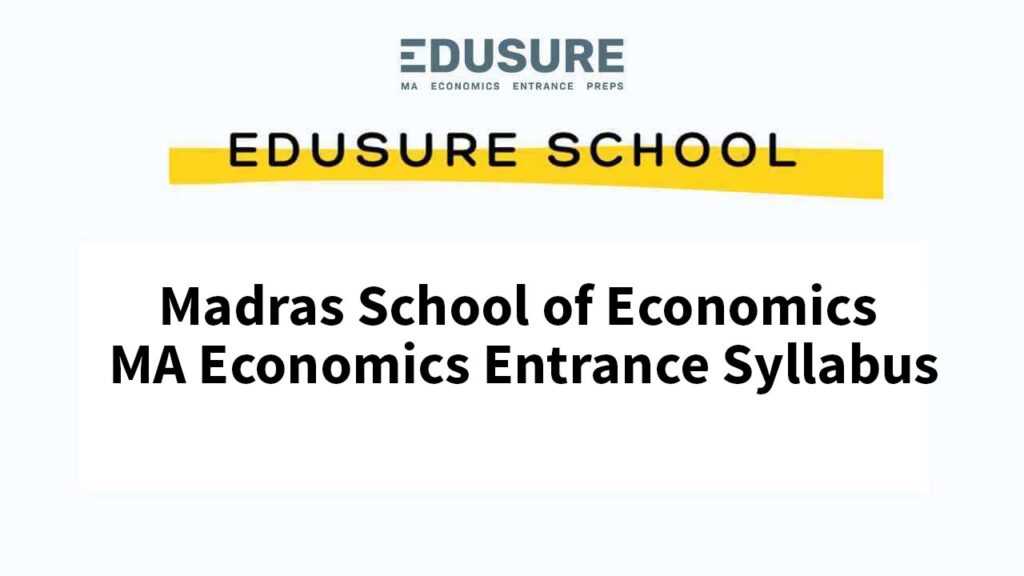MSE: MA Economics Entrance Test Syllabus

Preparing for the Madras School of Economics MA Economics Entrance Test? Understanding the syllabus is crucial for effective preparation. In this blog, we will provide you with a comprehensive overview of the syllabus for Part-A and Part-B of the entrance test, helping you streamline your study plan and increase your chances of success. Part-A Syllabus: […]

